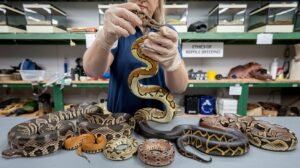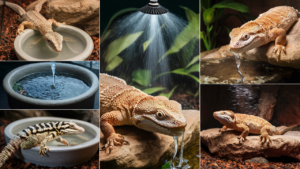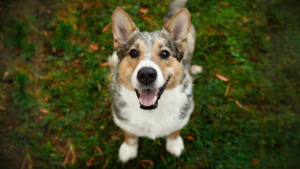Taking care of pets requires an understanding of various aspects of their health and well-being. This article explores the importance of puppy socialization classes, the specifics of kitten vaccination schedules, the intricacies of exotic pet licensing, and the exercise needs of small animals. Education in these areas can ensure happy and healthy lives for our beloved companions.
The Importance of Puppy Socialization Classes
Puppy socialization classes are essential for developing well-rounded dogs. These classes allow puppies to interact with other dogs and people, helping them build confidence and learn appropriate behaviors. During these sessions, puppies are exposed to various stimuli, including different environments, sounds, and situations, which can diminish fearfulness and anxiety in adulthood. The critical age for socialization is between 3 and 16 weeks, as early exposure can significantly influence a puppy’s temperament. Consequently, inadequate socialization can lead to behavioral issues such as aggression or excessive fear. Choosing a quality program involves seeking experienced trainers focused on positive reinforcement. These classes not only foster good manners but promote long-term health by decreasing stress-related behaviors.
Kittens require a structured vaccination schedule to ensure their health and protection against infectious diseases. Core vaccines, including FVRCP and rabies, are critical for all kittens, while non-core vaccines might be indicated based on lifestyle factors. Initial vaccinations are typically administered at 6-8 weeks, followed by boosters every 3-4 weeks until around 16 weeks. Skipping vaccinations exposes kittens to severe health risks, including life-threatening conditions. Indoor cats may need fewer vaccinations than outdoor ones due to reduced risks of disease exposure. Following veterinary recommendations is vital; deviations can compromise your kitten’s immunity and overall health, impacting long-term well-being.
Understanding Kitten Vaccination Schedules
Kittens require a careful vaccination schedule, starting with core vaccines like FVRCP at 6-8 weeks and a rabies vaccine at 12-16 weeks. Non-core vaccines, such as FeLV, are optional based on risk. Vaccination is crucial to protect against severe diseases, and delaying boosters can increase health risks. Indoor kittens may need fewer vaccines, while outdoor cats require more extensive coverage. Following vet recommendations ensures personalized care for your kitten’s health needs and lifestyle, promoting a long, happy life.
Navigating Exotic Pet Licensing
Owning exotic pets often requires a license depending on local regulations, varying by state or country. Animals like reptiles, birds, and certain mammals fall under ‘exotic’ classifications.
Challenges include ensuring proper habitats, diet, and socialization needs, alongside navigating legal frameworks that can be complex. Unlicensed ownership may lead to hefty fines or confiscation of animals.
Compliance necessitates understanding local laws and engaging with wildlife authorities. Ethically, potential owners should consider the well-being of the species, ensuring that their needs can be met responsibly and sustainably.
Meeting Small Animal Exercise Needs
Regular exercise is essential for small animals like rabbits, guinea pigs, and hamsters, promoting physical health and mental stimulation. Each species has different exercise needs; for example:
– **Rabbits:** Require at least 3 hours of playtime outside their enclosure daily, enjoying hopping, digging, and exploring.
– **Guinea Pigs:** Need about 1-2 hours of supervised floor time to run and socialize, as they thrive in groups.
– **Hamsters:** Benefit from nightly exercise, utilizing wheel running and tunnel exploration for up to 30 minutes.
Creating an engaging exercise routine involves providing a safe space, varied activities, and friend interactions. Use tunnels, toys, and obstacle courses to keep their environment enriching while ensuring it’s escape-proof. This routine not only fosters their wellbeing but also strengthens the bond between pet and owner.
Conclusions
In conclusion, ensuring the well-being of pets, whether puppies, kittens, or exotic animals, involves proper socialization, vaccination, licensing, and exercise. By taking the time to understand and address these needs, pet owners can foster healthier and more fulfilling lives for their furry friends. Investing in your pets’ care is a step towards responsible pet ownership.



